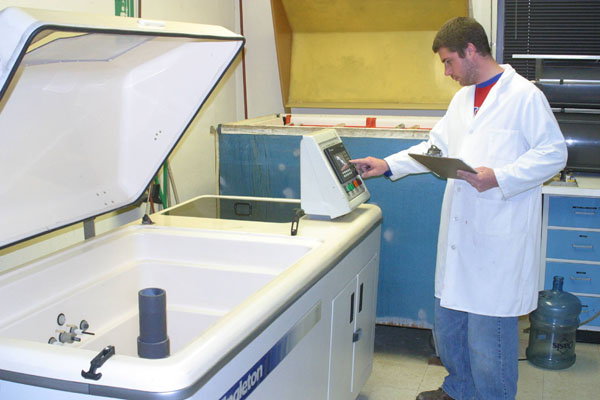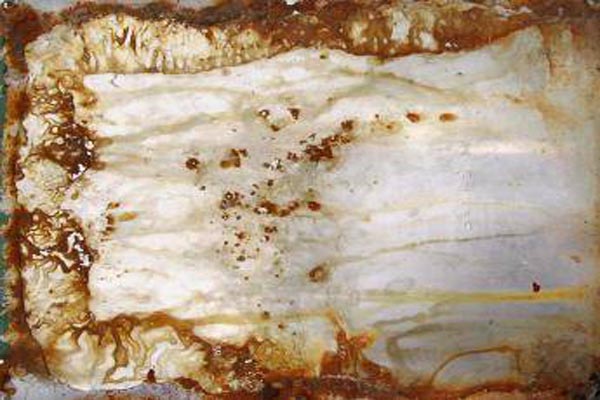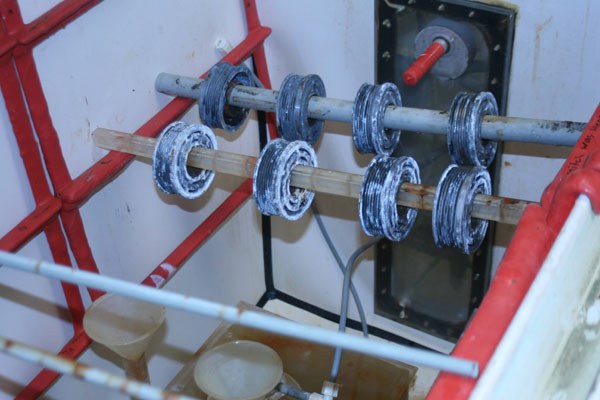Corrosion Testing
Understanding the makeup of your materials is important for chemical verification, selection, and contaminant identification.
Metallurgical Engineering offers comprehensive corrosion testing according to ASTM specifications. Our corrosion testing services include accelerated weathering by salt spray (ASTM B117) or CASS exposure (ASTM B368), as well as cyclical immersion testing and custom exposure cycles. You can reserve our environmental test chambers for as long as it takes to resolve your corrosion problems or let our experts study your materials to discover the root cause of failure.
Following exposure, MES will evaluate your materials for changes in mechanical properties, weight loss, or study corrosion cells under high magnification in our surface analysis laboratory. Data collected from corrosion testing helps to determine component service life, compare corrosion performance of materials, and identify problem areas, such as galvanic couples. Corrosion testing also provides quality control by ensuring that your coatings and electro-platings meet the required specification. Call to learn more about our corrosion testing capabilities or request a quote today.
SALT SPRAY TESTING
The salt spray test is a standardized test method (ASTM B117) used to check corrosion resistance of coated or non-coated metallic samples. Since coatings can provide a high corrosion resistance through the intended life of the part in use, it is necessary to check corrosion resistance at an accelerated rate.
Immersion corrosion testing
Immersion corrosion testing is used to determine resistance of a material to an aggressive, aqueous environment. Standard laboratory corrosion coupons are utilized to determine weight loss due to corrosion. The ASTM G31 test method normalizes corrosion rates to units of time, typically in mm/yr or mils per year (mpy). Test terms vary, but results can usually be obtained within a 10 or 20 day exposure cycle.
Other corrosion testing
- Cathodic Protection
- Electrochemical
- UV Exposure
- Temperature Humidity Cycling Exposure
- Artificial Sweat Exposure





